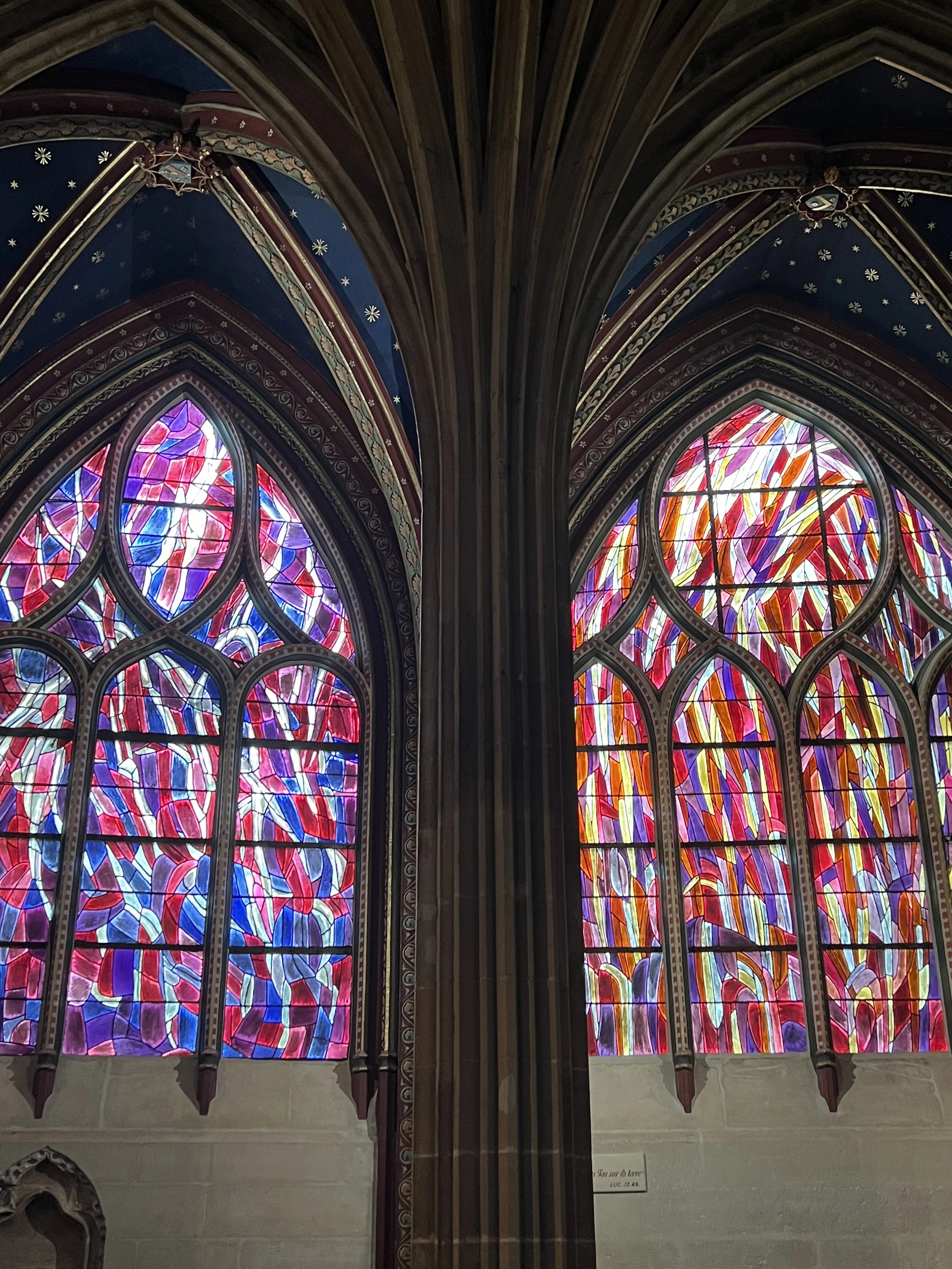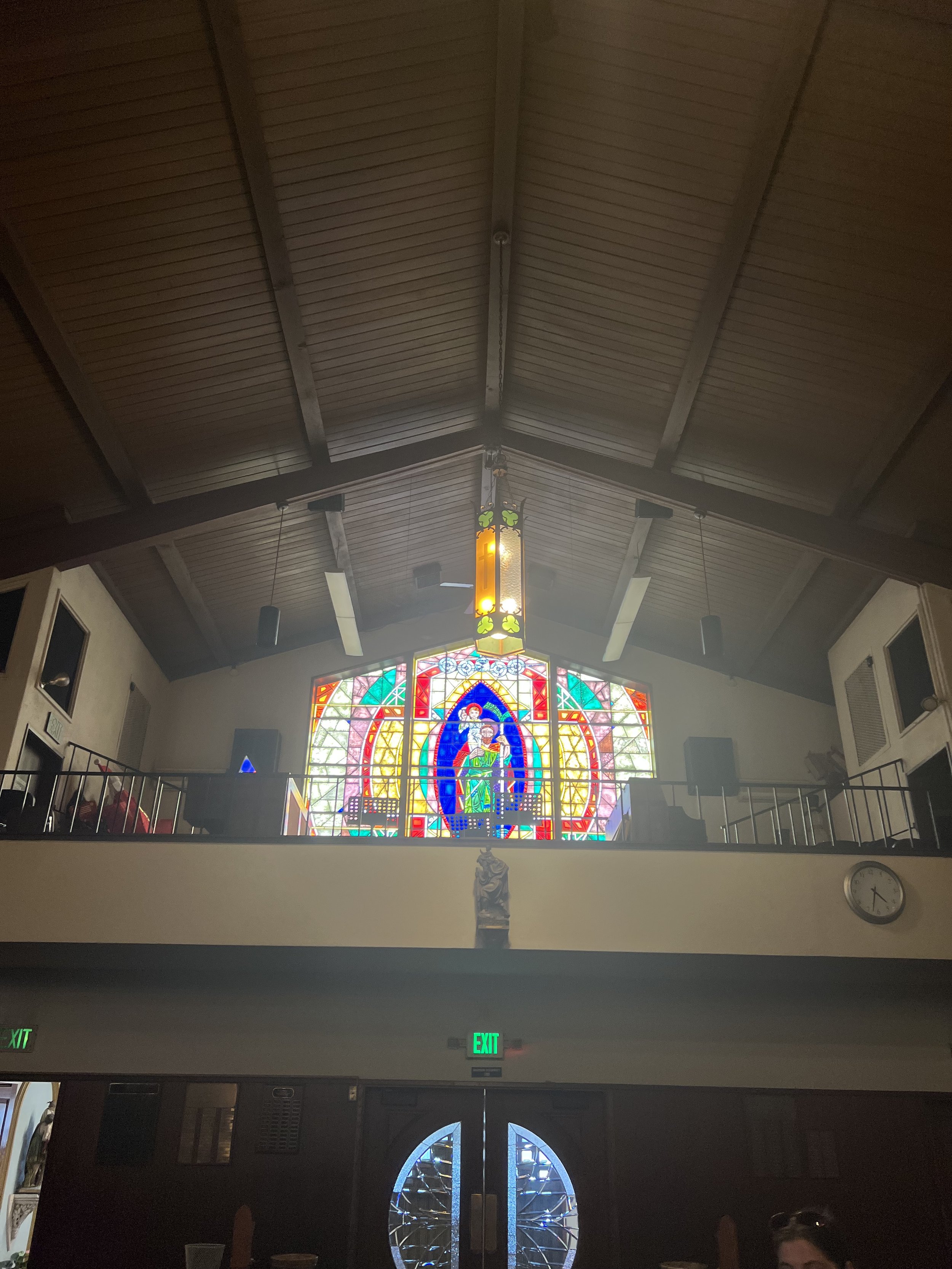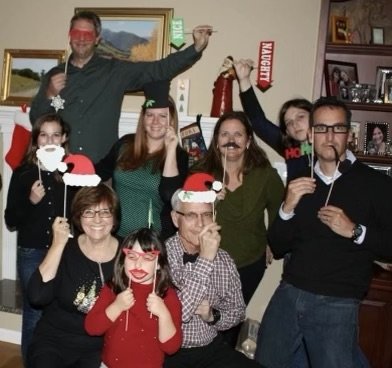Would Victor Hugo celebrate Christmas? This may seem like a silly question (who cares, Tori?), but our in-class conversations following our visits to many different churches in Paris have spurred interest in Hugo's religious beliefs. Les Miserables is a Christian-charged text- featuring biblically inspired characters, highlighting spaces of worship, and even directly talking about God- but the book itself feels more appreciative of spirituality than organized religion. He offers conflicting tidbits about Christianity and he talks critically of religion as an institution especially when he delves into the convent that Valjean and Cosette take refuge in. I also relate to this complex relationship with Christianity, but I choose to celebrate Christmas every year. If I invited Hugo to the Coleman family Christmas, would he come?
When first mentioning the sisters of the monastery, he declares “This book is a drama whose main character is the infinite. Man is the second character” (460). Coming from a man who is critical of the Christian church whilst writing at length about it, this is a particularly interesting statement. What is Hugo’s Infinite? Is it God or another force? Hugo uses the convent in Les Miserables as a vehicle for readers to understand his concept of the infinite. “This is not a place to develop certain ideas at unreasonable length; nevertheless, while abiding absolutely by our reservations, strictures and even censures, we must say that every time we encounter in man the infinite, well or ill understood, we have a feeling of respect. There is in a synagogue, the mosque, the pagoda, the wigwam, a hideous aspect that we loathe and a sublime aspect that we revere'' (Hugo 460). One can see from this passage that the Infinite is a feeling, not a person or a God. Like admiring the stained glass in the Place Saint-Gervais or appreciating the turquoise tile in the Grand Mosque, there is a certain kind of beauty that is appreciated by all- even if you are not affiliated with the religion itself; it is not just a materialistic notion of surface-level beauty, but also a moving feeling that one can only really ascribe to the Infinite. We can see that Hugo is a spiritual man, with both a reverence and distaste for religion, and he believes in the collective. I believe based on the text that he admires the common human struggle to search for destiny and he indugles in the goodness that is found in a unity. In many ways I can relate to this outlook.
I see many similarities between Christian education and the Convent of Perpetual Adoration in Les Miserables. Hugo discusses the complexities within places of education and religion in this section: “When speaking of convents- those places of error but also of innocence, of misguidedness but also of good intentions, of ignorance but also of devotion, of torture but also of martyrdom- almost always you have to say yes and no” (469). As Hugo describes here, organized religion can be both enlightening and ensnaring- traits I have observed in my time at Catholic schools as well. While I learned many amazing things during my educational journey, I also found that I was misled.
I grew up in private Catholic schooling where your education included receiving Catholic sacraments. On my birthday in second grade, I turned 8 and received my first communion! As a baptized and confirmed Catholic, I am now perfectly content as an agnostic. There are nuances and different schools of thought that rely on the devotee being knowledgeable and being given a choice, but what if that growing child is not offered a choice or cannot wrap their head around the huge big questions that either “side”- either organized religion or THE VOID- ask? As a kid, one cannot grasp an alternative when presented with a black-and-white teaching. This has led me to develop a respectfully critical and complex relationship with the Catholic Church.
I have a specific memory of riding home with my mom after school and detailing one of my days in the sixth grade. I talked about what online typing games we were playing in the computer lab, that I joined in volleyball at lunch, and shared with her that I learned that abortion was absolutely and always wrong. My mother offered me another perspective. I am pro choice. I continued on to two separate private Catholic schools where I could receive an incredible education and get into schools like USC. Again and again I found similar stories: abstinence is the only option, gay love is wrong, etc. However confusing these teachings were to navigate as a growing adult, I cannot place blame on my schools for failing to show me the freedom of choices. These are the same institutions that helped me to learn my ABC’s and lead with the Golden Rule. I attended obligatory mass and prayed when asked to pray with slight frustration at the convenience of it all, but always washing these grievances down with the nectar of a brilliant education. I have nothing to complain about.
Do I reproach Catholic spaces after feeling partially betrayed by the teachings? Funnily enough, I feel no resentment, just resolution that I know what I know and that is all I know. I have my own thoughts and opinions, but I can still feel the Infinite everyday without a Bible or a rosary. With that being said, I think churches are beautiful and I can understand the magic in a space of worship without believing devoutly. During my time at USC I have wandered into several nearby churches just to feel the energy that they possess. I even recently visited my elementary school church (as pictured above) just to sit and admire that infinite. Seeing the spaces in Paris has been particularly exhilarating, as that aura feels even more palpable in historic spaces. After attending school-mandated masses twice a month for 12 years, I recognize that I do not believe in Catholicism, but I appreciate the beauty of the space in which people can observe the Infinite. Older now, I know that I can feel the infinite without pledging myself to a religion, just like Hugo.
To answer my earlier question, I think Hugo’s definition of the Infinite is an amalgamation of a lot of things. It is goodness, it is humanity, it is potential, it is peace but it is also the endless effort of trying. It is change. There cannot be goodness without darkness, so I believe despair to also be Infinite. Is religion not also fundamentally composed of the fear of being without love, salvation, and community? The Infinite is not limited to a church; it can be seen in the loving eyes of strangers observing a giggling baby toddle to her mother’s open arms, or when people who “can’t sing '' raise their voices to a choir during a concert set list. The Infinite is connection above all else.
Does celebrating Christmas feel strange if one is not religious? I believe that Christmas is a day to celebrate the birth of Christ, but more importantly, it is about feeling the Infinite. Like Hugo, religion to me is a complex phenomenon that I both have a true respect for but also a distaste and confusion. I too can understand that absolutism can be damaging, but moderation can be freeing. My family is not religious, nor am I, and we have always been comfortable in that. My family still celebrates Christmas, despite none of us being particularly religious. We don’t just put up a meager branch and do a quiet gift exchange. Our Christmas involves hosting the entire family but both Christmas Eve and Christmas Day, a mountain of presents leaking from beneath the tallest tree into the next rooms, a crackling fire warming your back as you sit and listen to the four conversations being held at once. Christmas for me is about the sacredness of connection, not about the system of Christianity or even the belief in nativity. It is a moment of respect and scrutiny for religion and for tradition, but more importantly, it is about the energies humans bring to cultivate a connected space. Like in the stained glass in a church, the Infinite is felt in my home. In the same way that Hugo respects and indulges in moderation to the spirituality of religion to reach the Infinite, I think he would celebrate Christmas. If I could invite him, Victor Hugo would come to the Coleman family Christmas.






